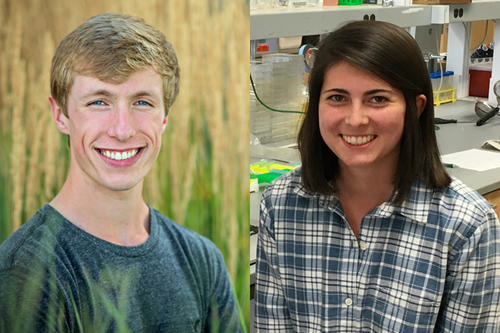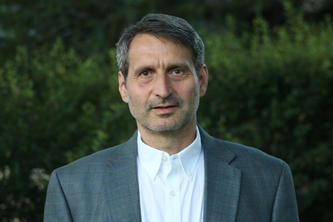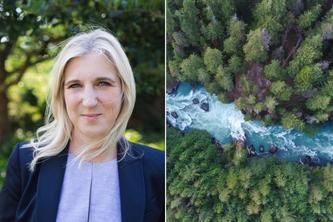
Winning a prestigious Astronaut Scholarship is a thrill, but meeting a former astronaut and hearing him tell what it’s like to walk on the moon—priceless.
For University of Minnesota students Matthew DeJong and Macy Vollbrecht, a trip to Washington, D.C. to meet not only moonwalking astronaut Charlie Duke but former astronaut and Kennedy Space Center director Robert Cabana put the icing on a very substantial cake. Selected by the Astronaut Scholarship Foundation (ASF), DeJong and Vollbrecht are two of 52 Astronaut Scholars for 2019-20.
“He talked about how strange it is to stand on the moon and look into the sky above you and see Earth instead of the moon,” says DeJong of listening to Duke. “To hear him talk about it was amazing.”
Hailing from Eden Prairie, Minnesota, DeJong is a chemical engineering student in the College of Science and Engineering. He worked first with former faculty member Yiannis Kaznessis, then with Professor Benjamin Hackel, who was engineering small proteins—peptides—that targeted specific disease organisms. DeJong devised a way to quickly evaluate millions of peptides’ potential.
“Dr. Kaznessis's expertise in antimicrobial technologies primed my interest in applying chemical engineering to solve human health problems,” DeJong says. “And Dr. Hackel has been a phenomenal mentor and advocate over the past two years, teaching me how to effectively design experiments, analyze data, and present findings while encouraging me to pursue opportunities like the Astronaut Scholarship.”
While he started out to become a doctor, DeJong hopes he can eventually save many times more lives by designing therapeutics that will help tens of thousands of people.
Vollbrecht, from Ames, Iowa, studies genetics, cell biology and development in the College of Biological Sciences. She has spent two and a half years working with Professor Dan Voytas, a nationally recognized innovator in the field of precision targeting of plant genome modifications. She currently works on a project to speed up the editing of potato genes.
“With this project, we are ultimately hoping to streamline the process of generating gene edited plants by bypassing certain bottlenecks often inherent in this process,” she says. Work in the lab “has important implications for basic plant biology, improving crop stress tolerance, and generally addressing issues of food security.
“Dr. Voytas is a leader in the field of plant genome engineering. I feel extremely fortunate that he has continually encouraged me to pursue enriching opportunities that have been instrumental for my growth as a budding scientist. These opportunities include applying for scholarship applications like the Astronaut Scholarship, presenting my research, and pairing me with mentors who have supported my increasing independence.”
She hasn’t decided between a career in academia vs. industry, but Vollbrecht knows she wants to continue trying to improve gene editing technologies, which can apply to global issues involving everything from agriculture to human health. Recently, she received a coveted Churchill Scholarship to the University of Cambridge, England.
The Astronaut Scholarship is given annually to outstanding sophomores and juniors who intend to pursue research-oriented careers in mathematics, engineering, and the natural and applied sciences. Winners also receive mentoring and professional development support, and attend the ASF Innovators Gala in Washington.
Read a Q&A with Matthew DeJong.
Read a Q&A with Macy Vollbrecht.
- Categories:
- Science and Technology





